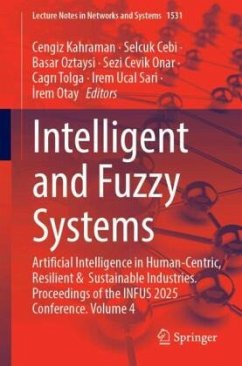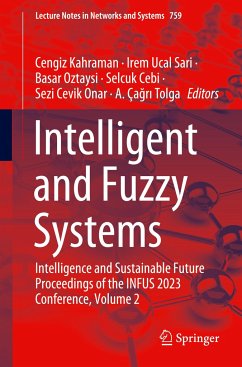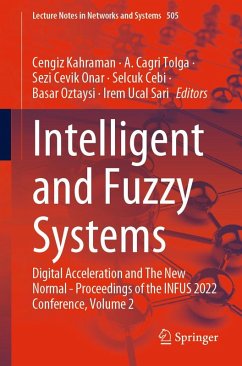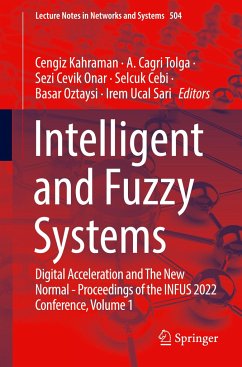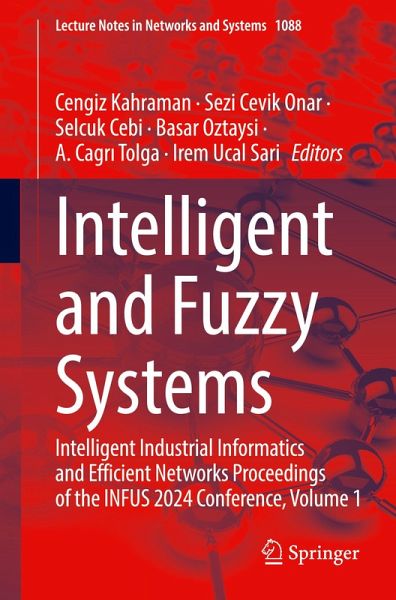
Intelligent and Fuzzy Systems
Intelligent Industrial Informatics and Efficient Networks Proceedings of the INFUS 2024 Conference, Volume 1
Herausgegeben: Kahraman, Cengiz; Cevik Onar, Sezi; Cebi, Selcuk; Oztaysi, Basar; Tolga, A. Cagri; Ucal Sari, Irem

PAYBACK Punkte
76 °P sammeln!
This book presents recent research in intelligent and fuzzy techniques on Intelligent Industrial Informatics and Efficient Networks. This cutting-edge field integrates advanced technologies, such as artificial intelligence, machine learning and data analytics, into industrial processes, revolutionizing the way industries operate. The book presents the examples of the implementation of smart sensors and IoT devices, which facilitate real-time data collection and communication. High-speed, low-latency networks ensure that information flows effortlessly between devices, enabling timely responses ...
This book presents recent research in intelligent and fuzzy techniques on Intelligent Industrial Informatics and Efficient Networks. This cutting-edge field integrates advanced technologies, such as artificial intelligence, machine learning and data analytics, into industrial processes, revolutionizing the way industries operate. The book presents the examples of the implementation of smart sensors and IoT devices, which facilitate real-time data collection and communication. High-speed, low-latency networks ensure that information flows effortlessly between devices, enabling timely responses and enabling the coordination of complex manufacturing processes. This network architecture supports the integration of edge computing, where data processing occurs closer to the source, reducing latency and enabling faster decision-making. The readers can benefit from this book for maintaining a leadership position among competitors in both manufacturing and service companies. The intended readers are intelligent and fuzzy systems researchers, lecturers, M.Sc. and Ph.D. students studying intelligent and fuzzy techniques. The book covers fuzzy logic theory and applications, heuristics and metaheuristics from optimization to machine learning, from quality management to risk management, making the book an excellent source for researchers.










